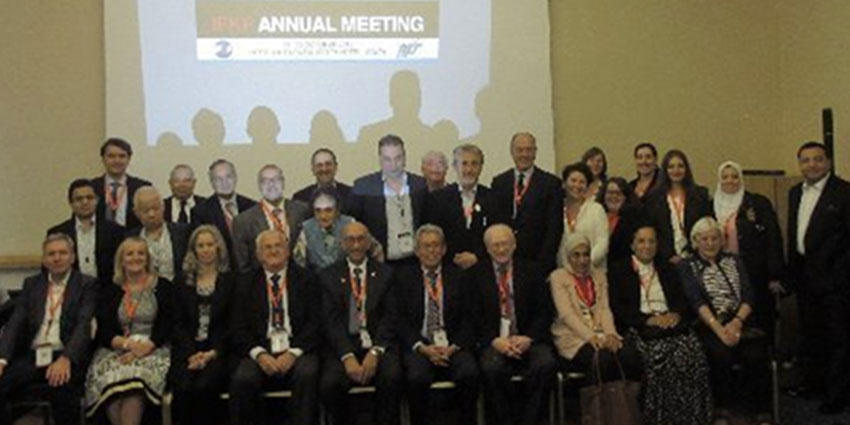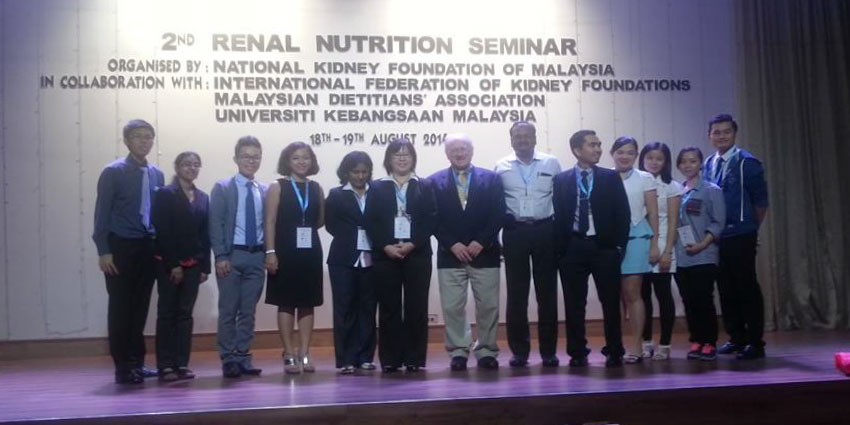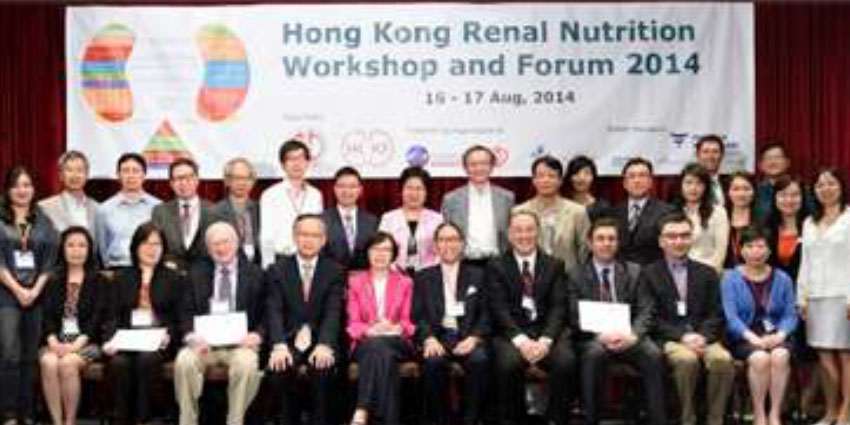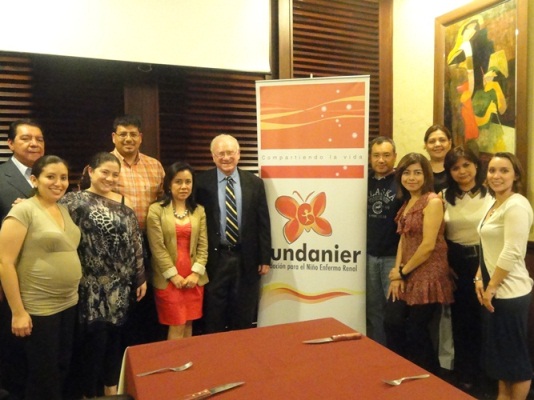IFKF educational course guidelines
IFKF Guidelines for Collaboration between the IFKF and Individual Kidney Foundations for Educational Courses for Kidney Healthcare Professionals (2016)
Introduction
These guidelines aim to standardize the procedures relating to collaborations between the IFKF and individual kidney foundations concerning the organization and implementation of approved educational courses for healthcare professionals such as nurses, dietitians and social workers/counsellors and other healthcare professionals, who are interested in the care of people with or at risk for kidney disease.
Individual IFKF members and associate members are encouraged to recommend kidney foundations to the IFKF Education Committee that may benefit from such educational courses in their own region and elsewhere.
The individual kidney foundation(s) must be a member(s) of the IFKF.
Purpose of education courses
- To improve the knowledge of renal healthcare professionals in the specific needs of kidney patients, with the view to providing an improved service for kidney patients.
- Help to energise individual kidney foundations in novel service delivery
- Increase the diversity and importance of the mission of kidney foundations.
- Expand the visibility of kidney foundations with regard to the public at large and increase their standing with scientific and professional organizations in the medical field, including societies of nephrology.
- Serve as a mechanism for fundraising for kidney foundations.
- Increase the visibility and branding of the IFKF.
Target audience
Healthcare professionals involved in the care of patients with or at risk of kidney disease, particularly nurses, dietitians, social worker/counsellors, and other two professionals involved with this care (e.g. pharmacists, physiotherapists, occupational therapists, transplant coordinators etc.).
Kidney foundation employees and volunteers should also be encouraged to attend.
Depending on the focus of the course, patients, their family members and/or representatives of patient associations may attend and/or participate in the teaching.
Duration of courses
Depending on location and the specific local needs, it is anticipated that most courses will be of two to three days duration and situated in convenient locations to the kidney foundation hosting or sponsoring the educational program.
Organisating the course
1.Role of the IFKF
The IFKF Education Committee and its designee will be available to assist the Local Organising Committee (LOC) in organising and planning educational courses for all professionals that care for kidney patients, but it is the host kidney foundation that will specify its requirements and needs. The host kidney foundation will be responsible for developing the courses unless the foundation and the Education Committee agree on an alternative.
IFKF Education Course Guidelines 1
Updated March 2016
If the IFKF designee is the first point of contact then he/she should make the LOC aware of the need to submit required information to the Chair of the Education Committee, as soon as possible.
The following information is needed to obtain IFKF approval and the use of IKFKF branding on the course material (using the IFKF logo).
- The initial and final program for the educational course at both planning and final stages
- Accreditations of the invited speakers
- Details of any contributions/sponsorships from company sponsors, both monetary and other
- A report of the meeting, including details of attendees with one or two photographs for publication on the IFKF website
The final program, once developed, must be submitted to the Education Committee in advance (six to eight weeks as a minimum) before commencement dates of the courses to be held, for the Committee’s review and approval.
This process is necessary to establish and ensure a standard for the course and to allow the use of IFKF brand as a mark of quality..
The IFKF will advertise the courses on its website and by its newsletters and other means, provide experts to help both organize and teach these courses, as required.
2. Role of the Kidney Foundation and the Local Organising Committee (LOC)
The host kidney foundation will appoint a local organizing committee composed of the relevant professional disciplines and others as needed.
The host kidney foundation is responsible for providing the financial resources required to cover its expenses and financial responsibilities.
The Kidney Foundation will be responsible for drafting the program. This should include the aim and learning outcomes/objectives of the course, the program titles with accredited presenters of the lectures and their affiliation.
They will also produce and administer an appropriate evaluation form for completion by attendees with results contained in a final report for the IFKF including photographs of the event..
The above information needs to be sent to the Chair of the Education Committee within one month of the course.
Th information will then be placed on the IFKF website.
The host kidney foundation is responsible for all local logistics:
- Invitatation of competent course teachers from the local, national or international renal community (IFKF) as the kidney foundation desires.
- Provision of travel and accommodation costs, if any that is required for the teachers to participate in these courses.
- The LOC with participating professional organizations may seek to obtain course accreditation as part of their CPD requirements (Continuous Professional Development)
- Organisation of meeting facilities, administration, registration, badges, certificates, lecture handouts, audio equipment, translating facilities, catering etc.
- Advertising, creation of a website, obtaining financial support from companies, exhibitors and the setting up of exhibitions
NB. These guidelines will be subject to review, any changes will be approved by the IFKF President, the President’s designee and the Chair of the Education Committee.




